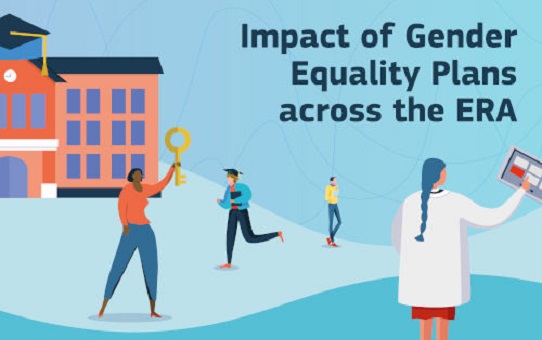Jörg Müller, senior researcher at GenTIC, participated as an invited speaker at the event “Impact of Gender Equality Plans across the European Research Area“, organised by the European Commission on 15 March to present and discuss a study commissioned by the EC’s Directorate-General for Research and Innovation on the impact that EU and national policies and programmes promoting Gender Equality Plans (GEPs) in research organisations have had on gender equality across the European Research Area (ERA). Müller was invited to contribute to the discussions as a member of this EC study’s Steering Group, as well as a research member of the Horizon Europe INSPIRE project and former Horizon 2020 ACT project coordinator.
The European Commission established the requirement that higher education institutions, research organisations, and public bodies from Member States and associated countries have in place a Gender Equality Plan (GEP) as an eligibility criterion for the Horizon Europe research and innovation framework programme 2021-2027. Furthermore, the ERA framework proposed by the European Commission in 2020, and the ERA Policy Agenda 2022-2024 recently adopted by the Council, reassert the need for institutional change through inclusive gender equality plans and policies with an intersectional approach. At this open event held on March 15, academic and professional experts discussed the opportunities, challenges, and policy gaps for the development and assessment of inclusive, intersectional gender equality plans and policies.
Jörg Müller’s intervention focused on the remaining barriers in monitoring and evaluating GEPs at EU, national and institutional levels, and what can be done. The researcher affirmed that some of the challenges should be addressed by concentrating monitoring and data collection efforts on the organisational level. Jörg Müller identified three main challenges: first, there are currently no monitoring indicators regarding the impact GEP eligibility criteria for Horizon Europe. In that regard, he affirmed that the best way to gather evidence on the impact of GEPs is to collect data at organisational level in order to monitor with indicators what has actually changed to improve gender equality.
Secondly, Jörg Müller emphasized the challenges linked to the collection of intersectional data to promote and implement inclusive GEPs due to legal restrictions in some countries regarding the collection of sensitive personal data. In his view, working directly with minorities at the organisational level might be a solution to collect self-reported intersectional data on the aspects they consider to be most important.
Finally, Jörg Müller stressed that there is a need to improve the capacities for more complex analysis and understanding of gender equality. “We need to move away from simply monitoring women and men’s balance to a more complex understanding of gender equality. It’s not about numerical participation but we need indicators regarding people’s experiences of equality and diversity inclusion in work environments”, he affirmed.
The video of the EC event “Impact of Gender Equality Plans across the European Research Area” is available here:
